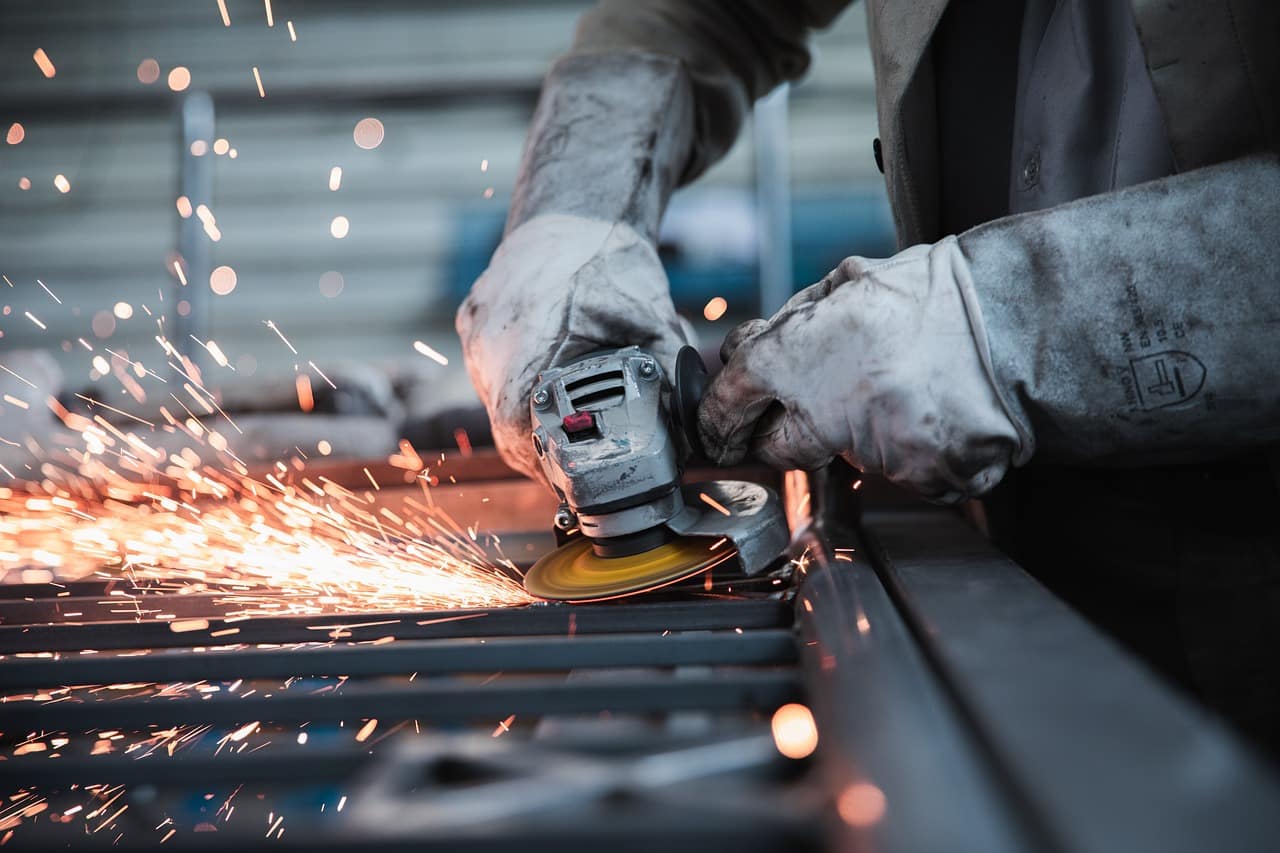Factory jobs are the backbone of many economies, churning out the products we use daily. But while these jobs provide a vital contribution, they can also come with a significant number of risks that factory workers face every day. From potential injuries to health hazards, understanding these risks is crucial for anyone considering or currently employed in a factory setting.
Physical Risks of Factory Work
The fast-paced environment of a factory can pose several physical threats. Here are some of the most common:
- Slips, trips, and falls: Uneven surfaces, spilled materials, and poorly lit areas can lead to these accidents, causing anything from minor bruises to serious injuries like broken bones.
- Exposure to hazardous machinery: Operating or working near heavy machinery carries a constant risk of getting caught in moving parts, crushed, or struck by objects.
- Lifting heavy objects: Manual lifting and repetitive motions can strain muscles, leading to back pain, herniated discs, and other musculoskeletal disorders.
Chemical and Environmental Hazards At Factories
Factories often use various chemicals in their processes, which can pose serious health risks if not handled properly. These risks include:
- Exposure to toxic substances: Inhalation or absorption of chemicals like solvents, paints, dust, and fumes can cause respiratory problems, skin irritation, and even poisoning.
- Noise pollution: Prolonged exposure to loud machinery can lead to hearing loss, tinnitus (ringing in the ears), and even increased stress levels.
- Extreme temperatures: Working in environments with extreme heat or cold can cause heatstroke, hypothermia, and other health problems.
Repetitive Strain Injuries (RSIs): A Closer Look
Many factory jobs involve repetitive tasks that require constant use of specific muscle groups. Over time, this repetitive motion can lead to repetitive strain injuries (RSIs), causing pain, discomfort, and reduced mobility in the affected area. RSIs are one of the most common health problems faced by factory workers, according to the Health and Safety Executive (HSE). Here are some specific examples of RSIs commonly seen in factory settings:
Carpal tunnel syndrome:
This condition affects the nerves in the wrist, causing pain, numbness, and tingling in the hand and fingers. It’s often associated with tasks involving sustained gripping or forceful hand movements.
Tendonitis:
This is inflammation of a tendon, the tissue that connects muscle to bone. It can occur in various areas, such as the elbows, shoulders, and wrists, depending on the repetitive motion involved.
Bursitis:
This inflammation of the bursa, a fluid-filled sac that cushions joints, can cause pain and stiffness in the affected area. It’s commonly seen in the shoulders, elbows, and knees, depending on the repetitive task.
Preventing RSIs:
Several strategies can help prevent RSIs in factories:
1. Job rotation:
Regularly changing tasks to avoid repetitive motions can help prevent the overuse of specific muscle groups.
2. Proper ergonomics:
Ensuring workstations are designed for proper posture and easy access to tools can minimize strain on the body.
3. Regular breaks:
Taking short breaks throughout the shift allows muscles to rest and recover, reducing the risk of strain.
4. Strength training exercises:
Building muscle strength and flexibility can help the body better handle repetitive tasks.
Receive a Call Back for Your Claim
The Mental Toll: The Often-Overlooked Psychological Risks Of Factory Work
While often overlooked, factory work can also pose significant psychological risks. Some of these include:
- Long working hours and irregular schedules: Working long shifts or rotating shifts can disrupt sleep patterns, leading to fatigue, stress, and difficulty maintaining a healthy work-life balance. Open communication with management about scheduling concerns and seeking support when needed is crucial.
- Job insecurity: The ever-changing nature of the manufacturing industry can lead to job insecurity and anxiety about potential layoffs or factory closures. Staying informed, developing diverse skills, and exploring career development opportunities can help manage these anxieties.
- Social isolation: Some factory jobs can be isolating, with limited opportunities for social interaction with colleagues. Building relationships with colleagues, participating in company events when possible, and fostering connections outside of work can help combat this feeling of isolation.

How To Stay Safe During Your Shift At A Factory?
Fortunately, many measures can be taken to mitigate the risks associated with factory work. These include:
1. Strict adherence to safety protocols:
Following all safety guidelines, using personal protective equipment (PPE) properly, and being aware of potential hazards are crucial for preventing accidents.
2. Regular training and education:
Workers should receive comprehensive training on safety procedures, specific hazards associated with their tasks, and proper use of machinery and equipment.
3. Open communication with management:
Reporting unsafe working conditions and seeking clarification on safety protocols is vital to ensure a safe work environment for everyone.
Making a Personal Injury Claim after a Factory Accident with National Claims
At National Claims, we understand the unique risks and challenges faced by factory workers. If you’ve been injured in a factory accident, our team is here to help you navigate the claims process and fight for the compensation you deserve. Here’s how we can assist you:
Free Consultation:
We offer a free, no-obligation consultation to discuss your case in detail. We’ll listen to your experience, analyze the accident circumstances, and assess the potential validity of your claim. This initial meeting allows you to understand your options.
No Win, No Fee:
We believe everyone deserves access to justice, regardless of financial circumstances. That’s why we offer a “No Win, No Fee” agreement. You won’t pay any upfront legal fees, and our payment is contingent on the success of your claim. This allows you to pursue compensation with confidence, knowing we’re invested in your case.
*Customers pay up to 25% (incl. VAT) of the amount recovered towards solicitor costs and if you cancel outside your cooling off period, you may be charged a fee.
Compassionate Support:
We understand that a factory accident can be physically and emotionally challenging. Our team provides compassionate support throughout the entire claims process. We’re here to answer your questions, address your concerns, and offer emotional support as you navigate this difficult time.
Conclusion
Factory work is essential to the economy, but it can also expose workers to various risks. If you’ve been injured due to negligence, you may be entitled to compensation. National Claims is here to guide you through the legal process and fight for the fair compensation you deserve.
Contact us today to speak to one of our claims agents who will be able to help you get started on your claim.
Click below to see why we are one of the most trusted claims management companies in the UK.

We’re proud of our excellent customer reviews
We thrive on delivering exceptional service and ensuring our clients’ satisfaction. Don’t just take our word for it. Check out some of our independent reviews to see what our clients have to say.
Excellent

This firm is excellent, they sorted out my car pay out and injury claim very fast, they always communicate with you all the time.

My accident case was dealt with confidence and with great result of the outcome, especially James kept me informed all the time.

I was very impressed at the way my inquiry was treated. I was listened to attentively and everything I needed to know was explained to me.






